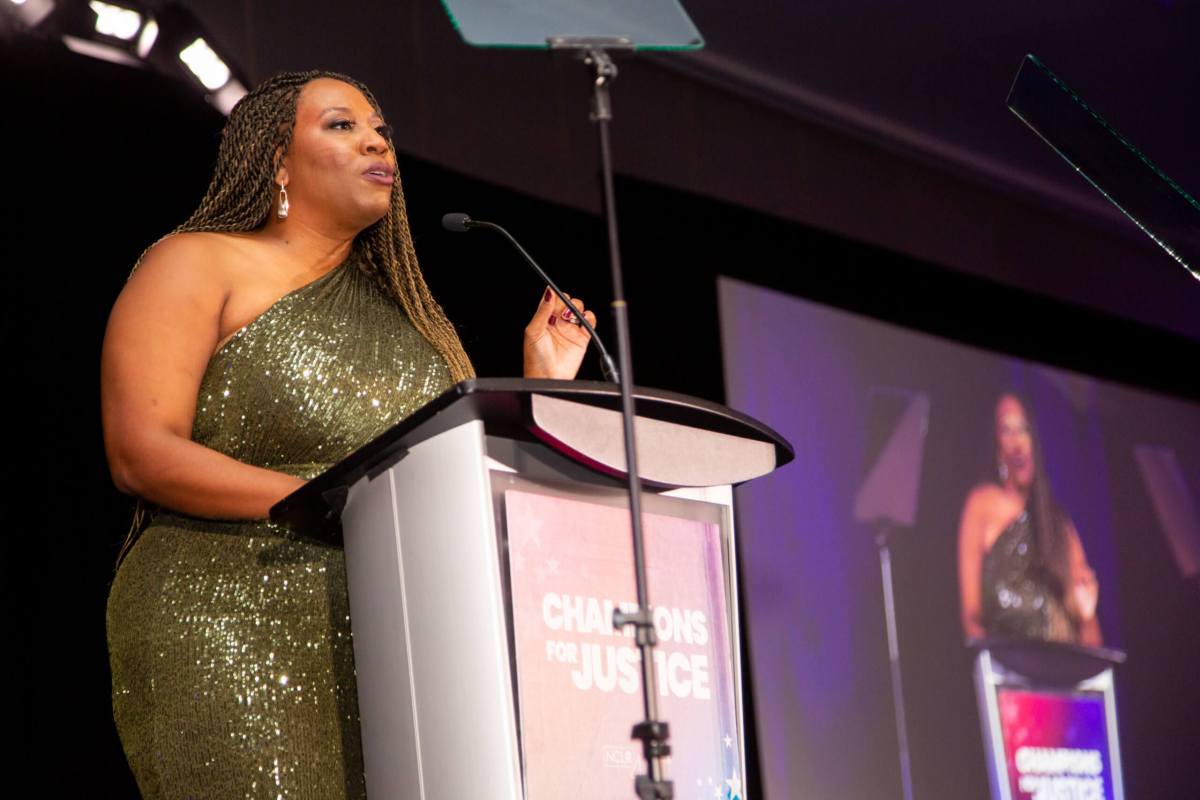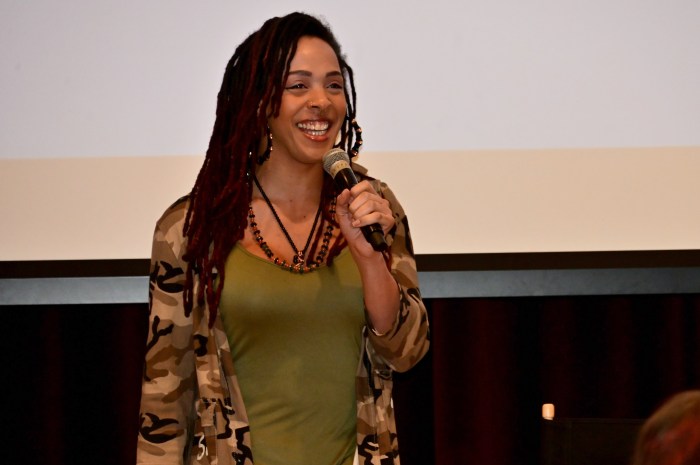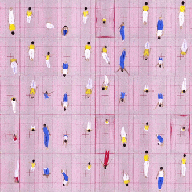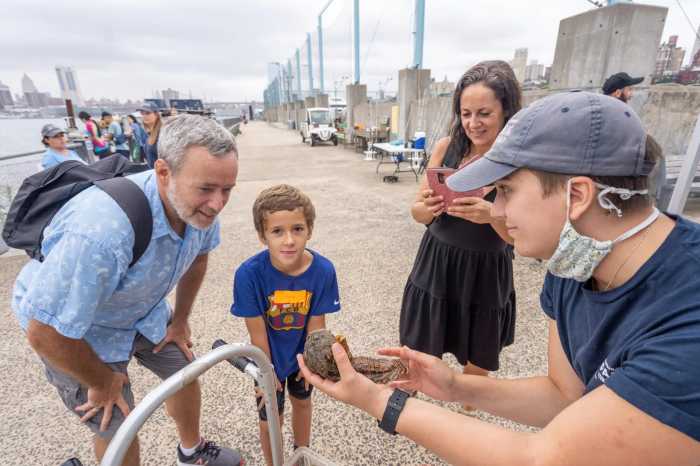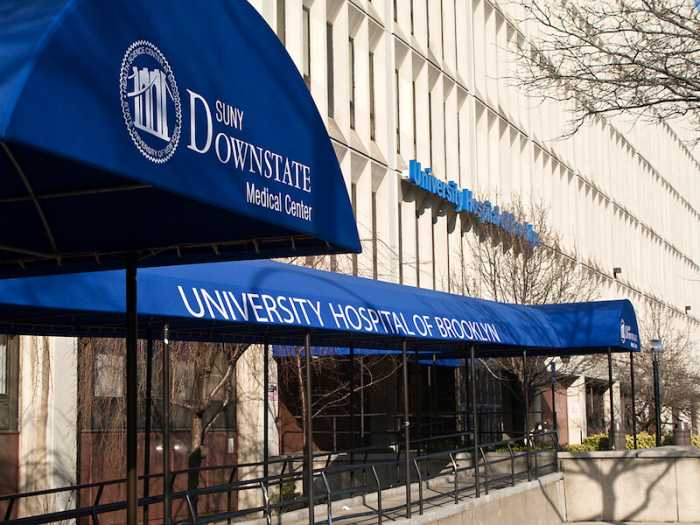The National Center for Lesbian Rights (NCLR) celebrated its 45th year in San Francisco on November 11 at its first in-person gala and party since the pandemic started.
The occasion also marked the first in-person gala for NCLR executive director Imani Rupert-Gordon since she took the the helm of the $6 million organization at the beginning of the pandemic in 2020. In the past, she attended the gala as a supporter.
Guests were entertained by standup comic, actor, and writer Cameron Esposito, best known for her podcast, “Queery.”
On November 11, Rupert-Gordon stood before the 550 dinner guests and 750 partygoers during back-to-back events that made up the “Champions for Justice” gala. Rupert-Gordon told attendees that NCLR was more than ready to meet the challenges of the next 45 years.
“NCLR has worked for 45 years to create a world where we can be our full selves. Not the smaller, stifled version of ourselves that our opponents would want,” she said, reminding people that the organization was built on the lesbian feminist vision to be inclusive.
Rupert-Gordon said that the emergence of 350 anti-LGBTQ bills and the overturning of Roe v. Wade are not separate issues, but are interwoven. They “all come from the same place,” the same “impulse” to ignore LGBTQ contributions to the country and make queer people feel like “smaller, stifled versions of ourselves.”
“These are all related. They want to control us. And they want to control us so they can marginalize us,” she told the audience. “We were made for this challenge. We were made for this moment.”
“Our goal is not to be the first — our goal is to change the world,” she said. “And if the path doesn’t exist, well then we’ll happily create one.”
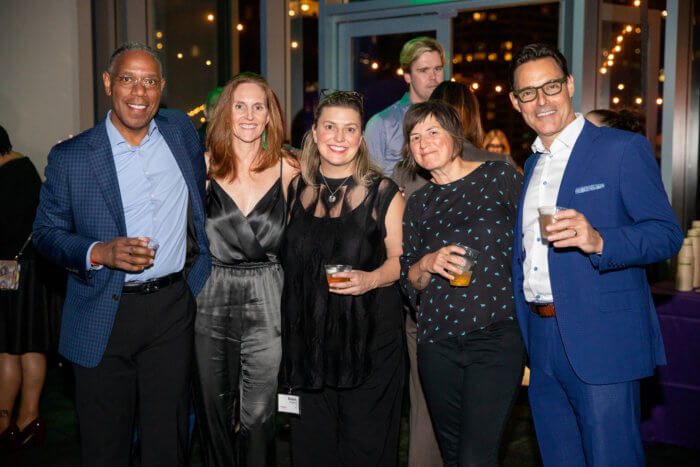
Creating the path
NCLR established a path when there was no such path in 1977. Donna Hitchens, 75, saw a need for lesbians not being met by the gay rights or women’s rights movements. As a law clerk at Equal Rights Advocates, a women’s rights legal advocacy organization, she launched NCLR as the Lesbian Rights Project with a $15,000 grant. The rest was fueled by youthful idealism, passion, and clients to get through early losses and eventually secure victories, Hitchens said.
“I saw a real need for a feminist organization that promoted the rights of lesbians … but also always in collaboration with other civil rights efforts,” Hitchens told Gay City News.
Early staff included Hitchens’ wife, Nancy Davis, a fellow ERA law clerk. They were both law students at the University of California, Berkeley’s School of Law at Boalt Hall. Roberta Achtenberg joined NCLR as its first legal director in 1980.
Their leadership placed NCLR at the forefront of some of the LGBTQ movement’s key battles for 45 years, often identifying a broad range of issues long before many other LGTBQ organizations.
Beyond the cases and courtrooms, NCLR spearheaded advocacy education and built ally relationships.
“NCLR was always a multi-trick pony,” said Achtenberg, a 72-year-old lesbian. “We were not ever thinking that impact litigation was the only tool we needed to use to try to address legal rights we were always into organizing [and] educating.”
“We don’t get to LGBTQ equality if LGBTQ people are still experiencing racism or sexism or heterosexism,” added Hitchens. “Those things don’t work separately. They all work together.”
Rupert-Gordon agreed, adding, “What we’re trying to do is not to get someone represented, but rather create a culture, an environment where folks can see themselves, can see multiple parts of their identity represented all through the organization.”
NCLR won in court for the first time in 1983 when a Black lesbian mother, Sharon Johnson, secured custody of her son Daimein, which led to the publication of “The Lesbian Mother Litigation Manual.” It was the organization’s first guide for lawyers working with lesbian mothers on their custody cases in the 1970s and 1980s. That success was followed by groundbreaking cases establishing a second-parent adoption precedent in 1986 and a partner guardianship case in 1991.
These early cases established NCLR as a force to be reckoned with, pushing it into the national spotlight as a leading LGBTQ legal advocacy and litigation organization.
The cases also transformed NCLR from a project under ERA’s wing into an organization in 1989.
Hitchens and Achtenberg left NCLR to pursue other goals. Davis and Hitchens, now retired, went on to become San Francisco Superior Court judges. Achtenberg served in the Clinton and Obama administrations among other accomplishments. She currently is a partner at ABK City Advisors and vice chair of the board of directors at Bank of San Francisco.
The Kendell effect
New leadership came to NCLR in the 1990s.
In 1996, Kate Kendell became NCLR’s third executive director. She joined the organization as legal director in 1994. Kendell resigned in 2018 after a 22-year reign at the helm.
NCLR continued to be on the cutting edge under Kendell’s leadership. The San Francisco-based organization took on and was one of the leading organizations winning same-sex marriage in 2015. In the early 2000s, it won the first-ever case, the infamous “dog mauling” case, where a same-sex partner was able to obtain a civil judgment recognizing a surviving partner as a family member. It followed that with winning four groundbreaking custody cases: three in California and one in Florida.
Kendell also proved to be an effective face of the LGBTQ movement and a successful fundraiser, pulling in millions of dollars for NCLR’s war chest as it took on the issues in the courtroom, led educational campaigns ranging from conversion therapy to immigration to sports to transgender rights, and worked with allies.
NCLR’s longtime legal director, Shannon Minter, a 61-year-old transgender man, also proved to be a formidable force leading legal battles.
NCLR 3.0
Rupert-Gordon, a social worker, stepped into the role of heading NCLR at a historic moment — the pandemic and a racial reckoning — in the world two years ago. She is now one of three Black queer women heading the LGBTQ community’s top organizations, along with the Human Rights Campaign’s incoming leader, Kelley Robinson, and the LGBTQ Task Force’s Kierra Johnson.
NCLR’s current battles include continuing the fight for family rights, but also fighting for transgender and non-binary rights, especially youth, and against conversion therapy. The organization’s anti-conversion therapy program, Born Perfect, has been the organization’s most successful campaign ever, Minter said.
Racism and poverty are also on the table.
“We don’t get to LGBTQ equality if LGBTQ people are still experiencing racism or sexism or heterosexism,” Rupert-Gordon said. “Those things don’t work separately. They all work together.”
NCLR is also reaching across the table to work with conservative and religious groups who are willing to find a common ground.
“We’re in a place right now where we are going to be working to win some of our rights back,” Rupert-Gordon said, “But this time, we’re going to do it better and we’re going to be stronger in doing that.”
The gala and party raised $455,000.

